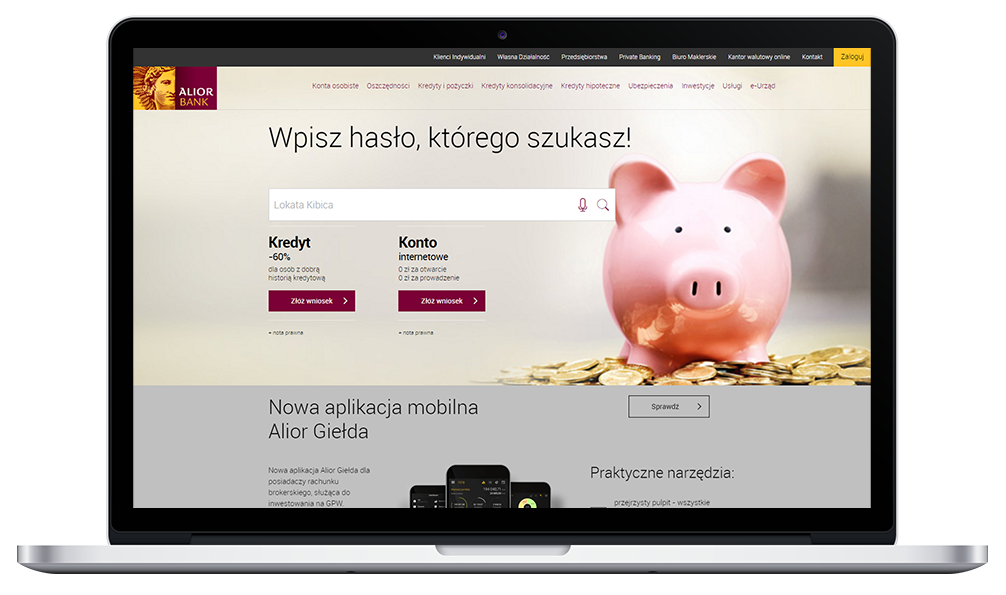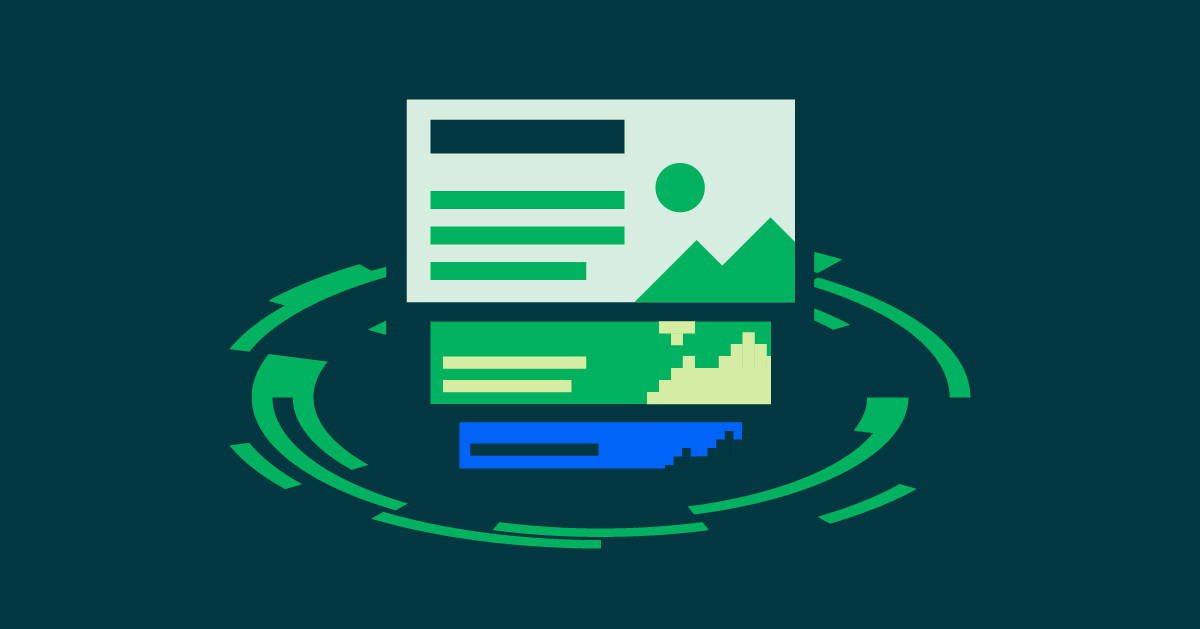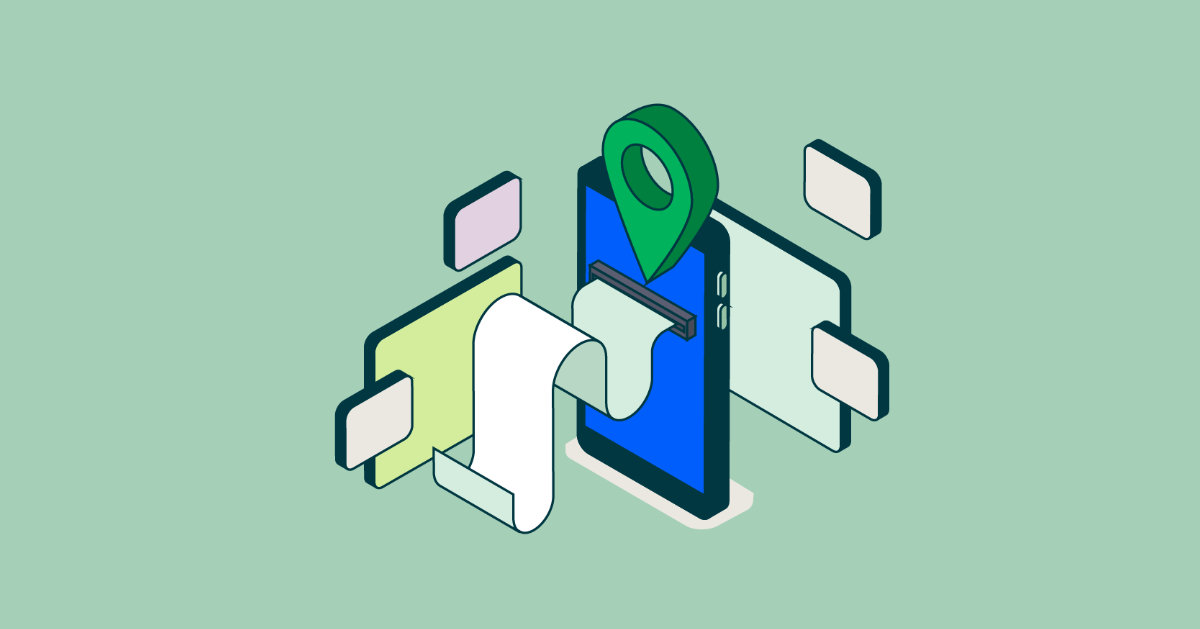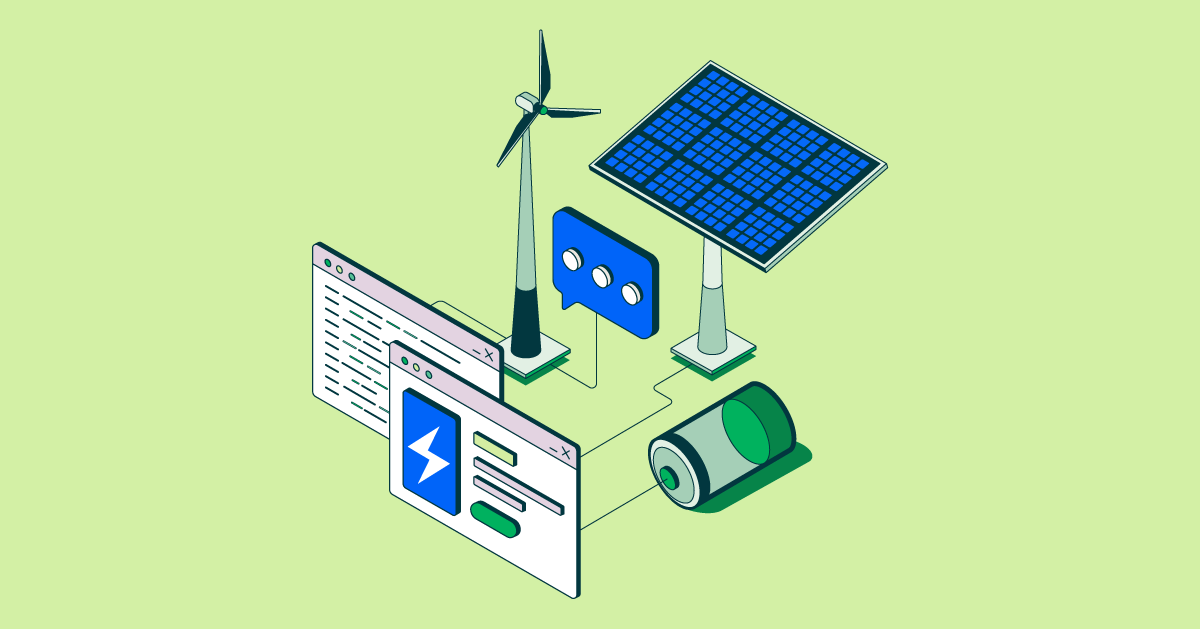- Jun 23, 2023
- --
Ecommerce personalization: Everything you need to know
Experience Magnolia in action
Experience Magnolia's key features firsthand in an interactive product tour.
Take a tour nowRetailers are always on the lookout for ways to stand out from the competition, increase customer loyalty and keep their customers happy. Many are well aware that one of the key ingredients to effectively doing all of those things is personalization.
However, when it comes to ecommerce, brands like Amazon have already set the bar so high that a new approach is necessary to compete. Hyperpersonalization is becoming the norm as brands discover that a one-size-fits all approach is no longer sufficient to meet the evolving customer demands. As Forrester points out, “organizations that fail to meet buyers’ expectations for personalized omnichannel communications risk losing market share to competitors that do.”
Ecommerce personalization provides a way for brands to maximize their capabilities and increase sales. It could be as easy as following relevant web personalization examples for inspiration. Unfortunately, not executing on such a strategy can cause brands to suffer. In this article we’ll dive into the world of ecommerce personalization and highlight why it’s important, the benefits of personalization in ecommerce and explain how a headless CMS fits into the equation.
What is ecommerce personalization?
The term “ecommerce personalization” relates to the set of practices in which an online store displays dynamic content based on customer data, such as demographics, intent, preferences, browsing history, previous purchases, and device usage—for instance, whether the customer is shopping on a mobile, tablet, or even a smartwatch. So what can you do with that personalization data?
For example, Magnolia CMS fulfills these practices through its targeting, personalization and optimization capabilities. You can define audiences and customer segments, personalize content based on both implicit and explicit customer data (including third party data, like weather services), test your personalized content, and fully individualize the customer experience based on user journey tracking.
Learn more about "What is ecommerce personalization?", "what is omnichannel personalization?", headless commerce and the related benefits in this article.
What is ecommerce personalization for B2B?
While companies that cater to a certain customer demographic may feel that ecommerce personalization doesn’t apply to them, the reality is that it matters. As a result these organizations need to be just as open to adopting an ecommerce headless CMS for B2B companies.
Why is personalization important in ecommerce?
Personalization ensures that the offers presented to your customers are relevant. Consumers have indicated time and time again that personalization is very important to them, with data from Epsilon showing that when brands provide them with personalized experiences, 80% of customers are more likely to make a purchase. Not to mention the fact that the opposite is also true. When brands fail to deliver personalized experiences to their customers then these customers are likely to want to choose a competitor that does a better job of tailoring their experience.
What is the difference between personalization and customization?
While marketers may be tempted to give customers the option to customize their experiences, it's important to note that personalization and customization are two different things. When brands enable customers to customize a product, they are placing the onus on the customer to build their own experience.
On the other hand, with personalization, the duty is on the brand to properly leverage customer data and provide an experience that the customer will want. By anticipating the customer’s needs before they have a chance to express them, brands can drive customer loyalty and improve their experience. However, there are also more benefits to doing personalization in ecommerce.
Benefits of ecommerce personalization
Personalization in ecommerce can be the difference between customers choosing your brand vs the competition, but why should brands choose to use personalization when selling products online? Here are a few reasons:
Better sales conversions
When a customer visits an ecommerce store and is going to decide if they’re going to make a purchase, they don’t want to be greeted by the same experience as everyone else. Ecommerce personalization can increase conversion rates by showing customers exactly what they’re looking for before they buy. By using tactics such as product recommendations when a customer is about to checkout, brands can showcase products that specific groups of customers are more likely to buy, increasing conversion rates for items that may not be popular with all of their customers.
Improved brand engagement
If you know where your customers want to shop and the types of products they are more likely to buy then you can improve engagement and the way they choose to interact with your brand. Personalization entices customers to want to interact with your brand because you showcase the products they want to see in the way they want to see them.
Increased customer loyalty
Ecommerce personalization makes your customers more loyal. By showing them that you consistently know what is expected of your brand and how to provide the experiences they want, they are more likely to show their loyalty and continue shopping with your brand vs the competition.
Enhanced customer experience
Personalization provides an enhanced customer experience because it helps your brand to better cater to customer needs and make their time shopping with you more enjoyable. Through personalization brands can remember customer preferences and direct them exactly where they want to go from the first time they enter your store. Showcasing the products they will want to see, storing payment information for quick access and updating them on upcoming promotions that they will be most interested in are just some of the ways personalization improves the customer experience.
Better understanding of customers
Ecommerce personalization doesn’t just help you improve the customer’s experience, it helps you to understand them better. Personalization requires brands to collect customer information to provide a better experience. When used correctly brands can discover where their customers are located, the types of products they enjoy buying and also the ones they don’t. This information can be used to determine which products to continue making and which ones to stop selling.
Competitive advantage
If your competition isn’t using ecommerce personalization then chances are that you will have an advantage over them. Personalization provides an opportunity for your brand to differentiate itself from others and endear itself to your customers. Customers can sometimes change their minds at the drop of a hat. However, if you’re providing a more personalized experience that they can’t find elsewhere, they are more likely to stay with you and even become brand advocates. As we’ve highlighted, it's not something for B2B companies to overlook either as B2B personalization in ecommerce can be seen as going the extra mile for your valued customers.
Increased customer lifetime value
Ecommerce personalization increases customer lifetime value by tailoring the shopping experience to meet customers' specific needs and preferences. By creating personalized recommendations and offers, businesses can build customer loyalty and drive profitability. Personalized content and promotions enhance the shopping experience, increasing the likelihood of future purchases. Ecommerce personalization is an essential strategy for improving customer relationships and the bottom line.
Increased cross-sales and up-sales
Ecommerce personalization offers effective cross-selling and up-selling opportunities to increase revenue and customer satisfaction. Cross-selling suggests complementary products based on purchase history or browsing behavior, while up-selling recommends premium or higher-priced versions of products. Personalization enhances these tactics by providing accurate customer data for personalized recommendations, leading to increased purchases and improved shopping experiences.
Improved operational efficiency
Personalization can increase organizational effectiveness. A portion of the personalization process, such as product recommendations and email marketing, can be automated to help organizations save time and money while still providing customers a customized experience. A more streamlined and effective ecommerce operation may result from this.
Create better commerce experiences with Magnolia
With its best-in-class Headless CMS, Connector Packs, and Headless Accelerator, Magnolia helps you create harmonious multi-channel shopping experiences from product description to check-out—from one unified platform.
Learn moreElements to personalize in your ecommerce store
Due to technological constraints, many marketers have had to settle with a basic level of personalization—like using the customer’s name in their email campaigns, for example. However, the modern consumer now expects far more when it comes to bespoke shopping experiences.
With the right technology stack, marketers can take advantage of ecommerce personalization by delivering personalized content across the customer journey. Here are a few ways an ecommerce website can be personalized:
Localized and targeted content
Customers will want to return to a site that delivers content relevant to their region, language, demographics, and interests. That includes banner content, blog posts, and even product descriptions.
Recommended products
If a customer makes a purchase from an online camera equipment store, the site can generate personalized recommendations that would coincide with a product the customer bought. For example, lights, lenses, and photo editing software.
Targeted discounts
Your ecommerce CMS can offer discounts on products the customer has previously purchased, or you can create bundles of related products at a lower price than the customer would pay for purchasing each item individually.
Navigation adjustment
If your customers visit your website enough times then you can identify the things they may be looking for. Adjusting the navigation based on previous purchases can save your customer time and encourage them to complete a purchase faster.
User-generated content
While customers may enjoy shopping with a brand, one of the primary drivers of customer loyalty in the first place is word of mouth and the input from their peers. By utilizing user generated content you can show the popularity of your products with your customer’s peers.
Where a CMS fits in
Marketers often attempt to use their ecommerce platform to manage content as well as commerce. The only problem is, enterprise-grade content management, and content personalization in particular, is where most ecommerce platforms fall short. While stellar ecommerce platforms certainly exist, they’re often (understandably) more focused on the product catalogs and streamlining the checkout process.

Thankfully, with an ecommerce CMS to hand, you can either leverage the CMS’s innate ecommerce features or integrate the CMS with an ecommerce software, giving you the best of both worlds.
For example, numerous brands use a combination of Magnolia CMS and systems like commercetools, Magento, IBM WebSphere or SAP Hybris Commerce, to deliver content and commerce to the end user. This combination enables retailers to leverage two powerful technologies simultaneously; Magnolia CMS for its content management, B2B ecommerce content marketing strategy and personalization features, and the ecommerce system for its catalog and shop capabilities.
Headless commerce: how a headless CMS helps with omnichannel personalization
Integrating two technologies is one thing, but to open up a new world of opportunity, you’ll want to be sure that your enterprise CMS has headless capabilities.
A headless CMS delivers content through API calls—which means content can be delivered to any channel or device, without limits. In an ecommerce environment, a headless CMS empowers marketers with the ability to send content and products to touchpoints like smart speakers and kiosk screens.
Those headless capabilities can be leveraged to create a seamless omnichannel personalization strategy, which could include:
Offline personalization: Link a customer’s online behavior and history to your brick-and-mortar store, giving them personalized messaging through push notifications, through in-store screens, or at checkout. Then, link their offline purchase data back to their account, which will help to further personalize future online and offline experiences.
Mobile and smartwatch app personalization: Extend your website’s personalization to apps and wearable devices, and send relevant push notifications leveraging geofencing.
Omnichannel personalization: Create a completely unified customer data platform and bring in every single interaction that a customer has with your brand, from discovery, to purchase, to loyalty. This way, you can offer an individualized and continuous experience—no matter if the customer moves from an online touchpoint to an offline or vice-versa. No matter how many new touchpoints you create, the experience will not feel disjointed.
Examples of ecommerce personalization
MOO’s ecommerce personalization strategy in action
MOO, a UK-based bespoke business stationery company, leverages Magnolia to deliver personalized content, products, and offers.
The MOO homepage serves up one example. Based on a customer’s past purchases, the homepage dynamically changes its banners to offer relevant deals and products. MOO is also using location-based personalization rules to serve customers personalized content depending on their city or country.

The company used Magnolia CMS to ensure that marketers could update the content and establish the parameters for personalization, without having to rely on their IT team at every turn. For instance, MOO’s in-house content editors quickly grasped Magnolia’s marketer-friendly interface, and can now drag-and-drop modules around the page more easily, affording more opportunities to promote particular products and pages.
"“Magnolia is a million times faster and easier, and has given freedom to our creative, marketing and developing teams. Our potential for conversions has increased dramatically.”"
Alior Bank’s personalization efforts yield increased sales

Poland-based Alior Bank used Magnolia to create a new customer-friendly website that provides a personalized experience for their customers.
With dedicated versions of the website available to specific groups of customers, Alior Bank is able to provide the most relevant information to customers at each stage of their buyer’s journey. With the help of statistical tools, they are able to determine the most visited pages and consequently tailor content in a way that enables them to increase sales.
Alior Bank leverages Magnolia to improve the search experience for customers, using predictive suggestions to help guide visitors. Plus, internal teams are finding it easier to create forms and landing pages that fit the needs of their customers, resulting in increased sales as traffic pours in from all directions including mobile traffic and organic search.
"“Thanks to Magnolia and its features, our website’s visitors are now more likely to choose our offer because they receive relevant content and personalized information. Instead of showing them the product we want to sell them, we can suggest the product they need, based on their previous visits.”"
Magnolia CMS: your content and commerce solution
Magnolia CMS is a powerful platform designed for content and commerce by offering a wide range of features to assist online merchants in customizing the shopping experience for their customers. Even if your clients engage with your company through various channels, Magnolia allows you to create relevant experiences that cater to their needs and interests.
Why use Magnolia?
Magnolia CMS enables scalable content customization, creating unique consumer experiences that may boost customer loyalty and engagement and raise conversion rates.
Magnolia's headless CMS makes creating and managing content for all channels simple, maintaining continuous consumer engagement that can lead to higher sales.
Businesses can create more focused and relevant content because of Magnolia's personalization tools and data analytics, which leads to increased engagement and conversion rates and, eventually, higher income and sales.
Magnolia is the ideal platform for companies aiming to provide their customers with relevant, engaging, and personalized experiences thanks to its personalization features, headless content management system, and analytics tools.
Feel free to try Magnolia CMS today!








